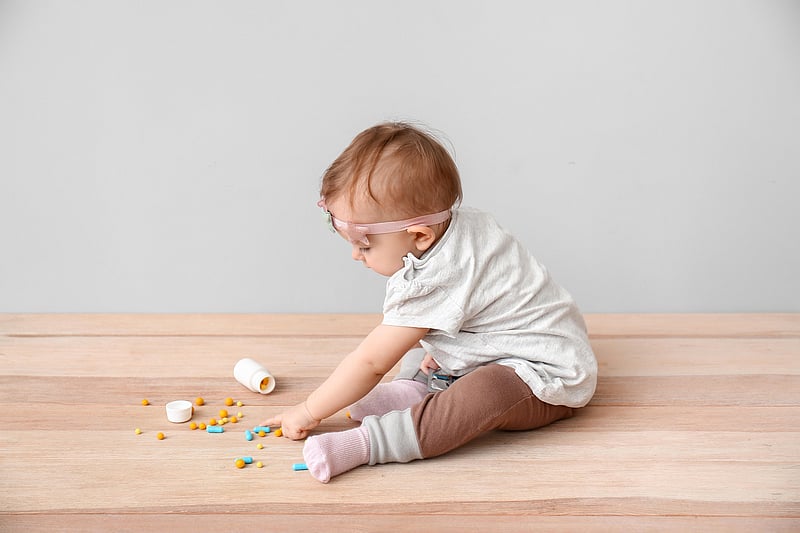Get Healthy!

- Posted June 3, 2022
Melatonin Poisoning Cases Soaring Among U.S. Kids
It's a startling statistic: A new study finds the number of kids accidentally poisoned by the over-the-counter sleep aid melatonin has soared by 530% over the past decade.
For most children, the overdose only causes excessive sleepiness, but for some it can result in hospitalization and even death, the researchers found.
"The largest increases were unintentional ingestions or accidental ingestions in children, less than 5 years of age, which was kind of an astounding finding," said lead researcher Dr. Karima Lelak, from the department of pediatrics at the Children's Hospital of Michigan, in Detroit.
The most common symptom of a melatonin overdose is excessive sleepiness, which can range from being able to easily awaken the child to not being able to rouse them.
Lelak believes the cause of these dramatic increases in accidental poisonings is the growing stress levels in the United States, which make it harder to sleep. These stresses have made the sleep supplement more common and easier for kids to access.
This was particularly true during the pandemic, which had parents and their kids reaching for the melatonin, Lelak said.
"I think more people were requiring melatonin to fall asleep just with the day-to-day stresses of going through the pandemic," she said.
For the study, Lelak and her colleagues collected data on more than 260,000 children poisoned by melatonin who were reported to the American Association of Poison Control Centers' National Poison Data System from Jan. 1, 2012, to Dec. 31, 2021. Over that time, poisonings increased from about 8,340 in 2012 to nearly 53,000 in 2021. The biggest increase (38%) was seen from 2019 to 2020, during the height of the pandemic.
Accidental ingestion of melatonin accounted for nearly 5% of all pediatric ingestions reported to poison control centers in 2021, compared with less than 1% in 2012, the investigators found.
Over the study period, more kids needed hospitalization for serious consequences of melatonin overdoses, especially children aged 5 and younger. Five children needed to be placed on ventilators and two died, Lelak's team reported.
Lelak said that parents need to treat melatonin like any drug and keep it out of the reach of their kids.
"It's not just a gummy vitamin, so they need to store it appropriately within their medicine cabinets, as opposed to a nightstand," she explained.
The findings were published online June 3 in the Morbidity and Mortality Weekly Report, a publication of the U.S. Centers for Disease Control and Prevention.
Dr. Matthew Harris, an emergency room physician at Cohen Children's Medical Center in Queens, N.Y., said he has seen increases in melatonin overdoses in the emergency room.
"This study is worrisome from the perspective that any medication overdose [that] increases by 530% should raise some flags," he said.
Melatonin overdose typically presents in kids with some degree of sleepiness. "Most kids required just a period of observation in emergency departments if they even require evaluation at all," Harris said.
But melatonin can also cause nausea, vomiting and stomach pain. Lelak added that melatonin is not a benign drug and can be dangerous if one takes too much. "Melatonin is not as safe as people might think," she said.
Harris urged parents to be aware that, "like any other medication, [it] should be out of the reach of children at all times."
More information
For more on melatonin, head to the U.S. National Center for Complementary and Integrative Health.
SOURCES: Karima Lelak, MD, department of pediatrics, Children's Hospital of Michigan, Detroit; Matthew Harris, MD, emergency room physician, Cohen Children's Medical Center, Queens, N.Y.; Morbidity and Mortality Weekly Report, June 3, 2022, online


